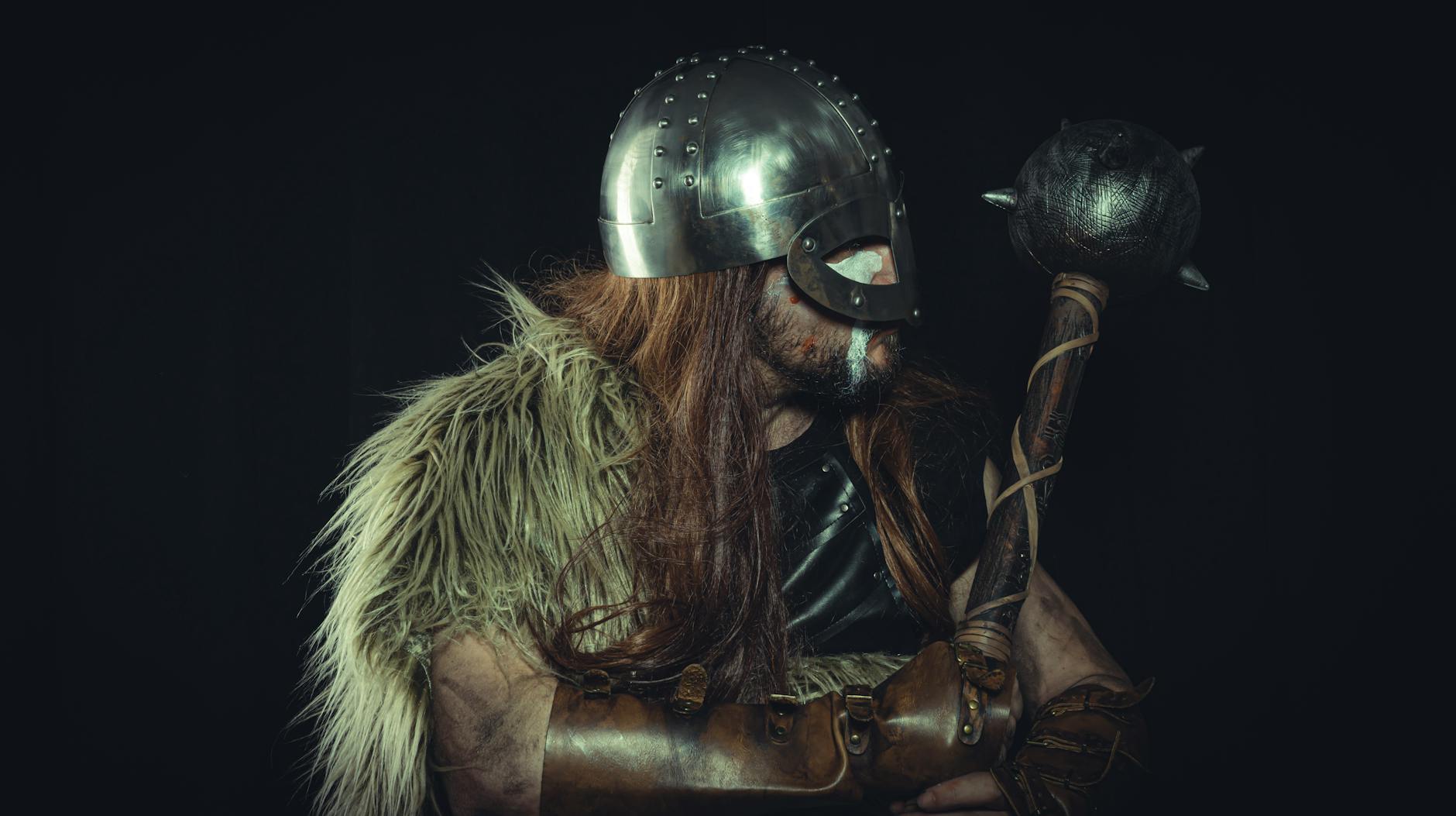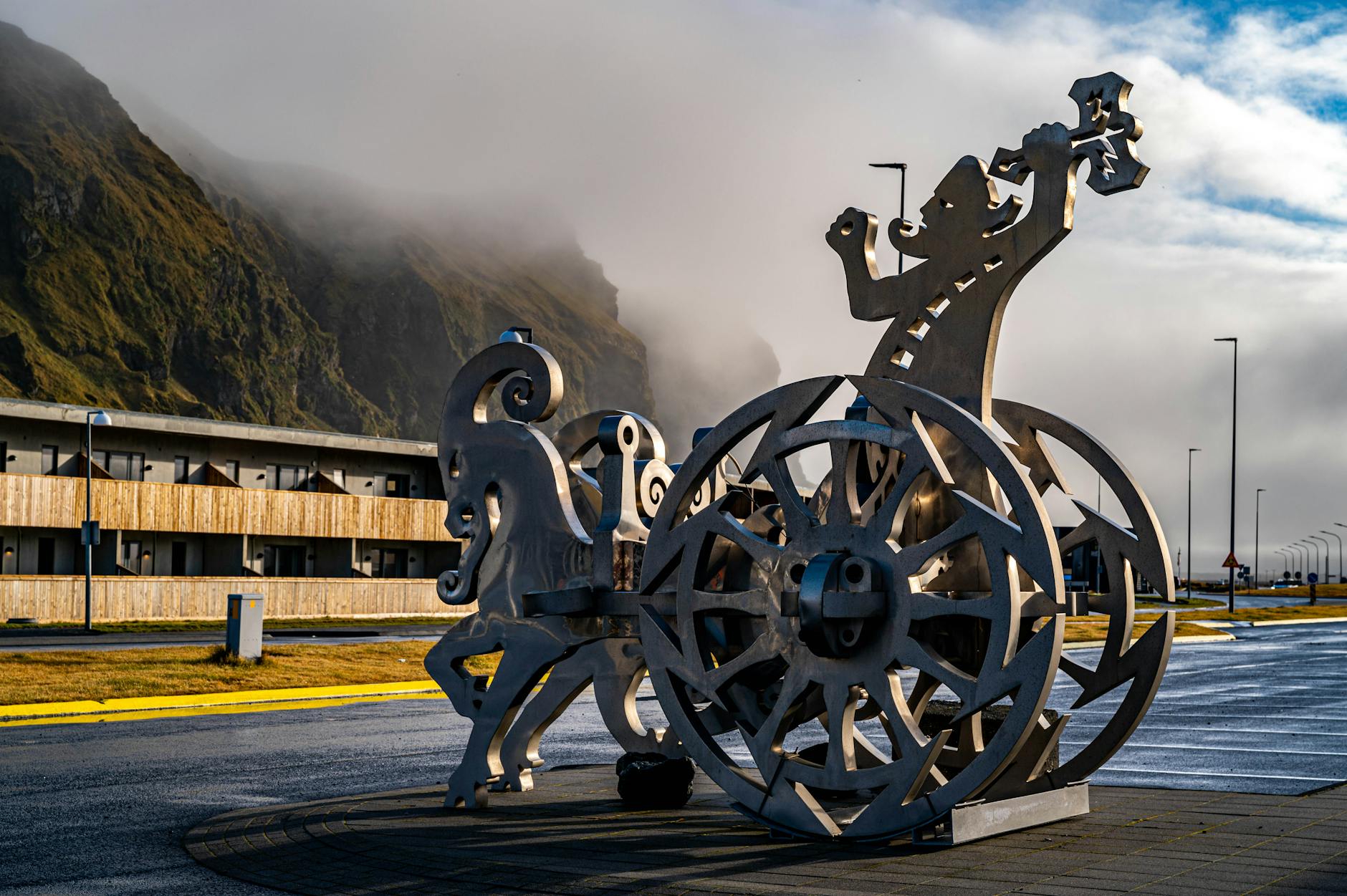The role of mythology in modern storytelling has never been more prominent than in the current era of blockbuster filmmaking, where ancient gods walk alongside superheroes and thousand-year-old legends find new life on cinema screens worldwide. Marvel’s Thor franchise stands as perhaps the most successful example of this mythological adaptation, having grossed over $3.3 billion across four solo films while introducing Norse mythology to audiences who might never have encountered Odin, Loki, or the World Tree in any other context. This blending of ancient narrative traditions with contemporary superhero storytelling raises fascinating questions about how myths function in modern entertainment and why audiences continue to respond so powerfully to stories first told around Viking campfires over a millennium ago. Understanding how mythology operates within modern storytelling matters because it reveals something fundamental about human narrative needs that transcend historical periods and cultural boundaries. The Thor films grapple with the same themes that occupied the original Norse poets: familial duty, the nature of worthiness, the relationship between power and wisdom, and the inevitability of death and renewal.
For filmmakers and screenwriters, studying this adaptation process offers practical lessons about character depth, thematic resonance, and the creation of fictional worlds that feel both fantastical and emotionally truthful. For audiences, recognizing these mythological underpinnings enriches the viewing experience and connects modern entertainment to a vast tradition of human storytelling. By the end of this analysis, readers will understand the specific techniques Marvel employed to translate Norse mythology for contemporary audiences, the scholarly framework for analyzing mythological adaptation in film, and the broader implications of this storytelling approach for the future of cinema. The discussion will cover everything from Joseph Campbell’s monomyth theory to the specific creative decisions made by directors Kenneth Branagh, Alan Taylor, and Taika Waititi across the Thor franchise. Whether approaching this topic as a film student, a mythology enthusiast, or simply someone curious about why these particular stories resonate so deeply, this examination provides both theoretical understanding and practical insight into one of modern cinema’s most successful mythological adaptations.
Table of Contents
- Why Does Norse Mythology Resonate in Marvel’s Thor Films?
- Mythological Adaptation Techniques in Thor’s Cinematic Universe
- The Monomyth Structure and Thor’s Hero Journey
- How Marvel’s Thor Reinterprets Classical Mythology for Contemporary Audiences
- Common Misconceptions About Norse Mythology in Modern Thor Adaptations
- The Cultural Impact of Mythological Superhero Films
- How to Prepare
- How to Apply This
- Expert Tips
- Conclusion
- Frequently Asked Questions
Why Does Norse Mythology Resonate in Marvel’s Thor Films?
The success of Norse mythology in Marvel’s Thor films stems from the inherent dramatic qualities of the original source material, which featured morally complex gods, apocalyptic stakes, and family dynamics that would feel at home in any contemporary drama. Unlike the Greek or Roman pantheons, where gods often appeared distant and capricious, Norse mythology presented deities who were fundamentally mortal””Odin himself was destined to die at Ragnarok, and even the mighty Thor would fall in battle against the world serpent. This mortality gave the Norse gods a vulnerability and urgency that translates remarkably well to superhero narratives, where stakes and character growth depend on genuine risk and the possibility of failure.
The specific elements Marvel drew from Norse mythology provided a ready-made narrative framework with built-in conflicts and character arcs. The relationship between Thor and Loki mirrors the mythological tension between these figures, though the comics and films significantly expanded their fraternal bond beyond what exists in the original Eddas. Asgard’s depiction as a gleaming realm connected to other worlds via the Bifrost bridge came directly from Norse cosmology, which described nine worlds connected by the great tree Yggdrasil. The concept of Ragnarok””the twilight of the gods””provided the franchise with its most dramatically satisfying installment, allowing director Taika Waititi to literalize the mythological apocalypse while using it as a metaphor for necessary destruction and renewal.
- The Norse concept of wyrd (fate) informs Thor’s character arc across all four films, as he struggles against and ultimately accepts his destiny
- Odin’s portrayal draws from the mythological Allfather’s complex nature as both wisdom-seeker and war-god, explaining Anthony Hopkins’s multifaceted performance
- The hammer Mjolnir’s worthiness enchantment, while a Marvel invention, builds on the mythological hammer’s association with protection and sanctification
- Hela’s introduction in Thor: Ragnarok draws from both the goddess Hel and the Valkyries, combining death imagery with warrior culture
- The Warriors Three and Lady Sif represent Marvel’s adaptation of the broader Aesir community, giving Thor a supporting cast rooted in mythological tradition

Mythological Adaptation Techniques in Thor’s Cinematic Universe
Marvel Studios employed several sophisticated adaptation techniques to transform Norse mythology into accessible blockbuster entertainment while maintaining enough authenticity to satisfy scholars and enthusiasts. The primary approach involved what mythologist Karen Armstrong calls “demythologization followed by remythologization”””stripping away the specifically religious elements of the source material and rebuilding the narrative around universal psychological and emotional truths. Thor’s journey from arrogant prince to worthy hero follows this pattern, removing the cultic significance of Thor worship while preserving the mythological theme of power requiring wisdom and humility.
The visual language of the Thor films demonstrates careful attention to archaeological and art historical sources, filtered through the lens of science fiction aesthetics. Production designer Bo Welch, working on the first film, studied Viking artifacts, Norse illuminated manuscripts, and nineteenth-century Romantic paintings of mythological subjects to create Asgard’s distinctive look””golden spires that evoke both medieval imagination and futuristic technology. This “magic as advanced science” approach, explicitly stated in the first film through Jane Foster’s observation that magic and science are indistinguishable at sufficient advancement, allowed Marvel to incorporate genuinely mythological elements without violating the internally consistent pseudo-scientific logic of the broader MCU.
- Kenneth Branagh’s Shakespearean background informed the first film’s treatment of family drama and royal succession, lending mythic weight to Thor’s exile
- The Bifrost bridge’s depiction as both rainbow and wormhole merges the mythological “burning rainbow” with Einstein-Rosen bridge theory
- Costume design by Alexandra Byrne incorporated actual Viking-era silhouettes and materials alongside comic book aesthetics
- The depiction of Jotunheim drew from Snorri Sturluson’s descriptions in the Prose Edda while adding visual elements suited to IMAX presentation
- Language patterns in Asgardian dialogue subtly echo alliterative verse structures found in Old Norse poetry
The Monomyth Structure and Thor’s Hero Journey
Joseph Campbell’s monomyth theory, articulated in “The hero with a Thousand Faces” (1949), provides the theoretical backbone for understanding Thor’s narrative arc and explains why his story achieves mythological resonance despite its modern superhero trappings. Campbell argued that hero myths across cultures share a common structure: departure from the ordinary world, initiation through trials, and return with transformative knowledge. The first Thor film follows this pattern almost precisely, with Thor’s banishment to Earth serving as departure, his experiences among humans as initiation, and his sacrifice and resurrection as the transformative return.
What distinguishes Thor’s journey from generic monomyth applications is how the franchise complicates and eventually subverts Campbell’s structure across multiple films. Thor: The Dark World struggled partly because it attempted to repeat the journey rather than advance it, while Thor: Ragnarok succeeded by inverting expectations””Thor’s return to Asgard leads not to restoration but to deliberate destruction. The fourth film, Thor: Love and Thunder, fragments the monomyth by splitting the hero’s journey between Thor and Jane Foster, who undergoes her own mythological transformation into the Mighty Thor. This distribution of the monomyth across multiple characters reflects contemporary skepticism toward single-hero narratives while honoring the mythological tradition of ensemble tales like the Volsung Saga.
- The “meeting with the goddess” phase manifests through Thor’s relationship with Jane, Sif, and Valkyrie across the franchise
- Thor’s worthiness crisis in the first film corresponds to Campbell’s “belly of the whale” phase of symbolic death
- The refusal of the call, a classic monomyth element, appears most clearly in Thor’s reluctance to become king
- Each villain represents Campbell’s “shadow self”””Loki as trickster shadow, Hela as death shadow, Gorr as faith shadow

How Marvel’s Thor Reinterprets Classical Mythology for Contemporary Audiences
The practical reinterpretation of Norse mythology for twenty-first-century audiences required Marvel to navigate complex issues of cultural sensitivity, gender representation, and moral complexity that the original myths either ignored or handled in ways unacceptable to modern viewers. Traditional Norse mythology reflected a warrior culture with rigid gender roles, casual brutality, and ethical frameworks fundamentally different from contemporary Western values. Marvel’s adaptation selectively emphasized certain elements while quietly discarding others, creating a mythology that feels ancient in flavor but modern in values.
Gender representation offers a clear example of this selective adaptation. The mythological Thor had a wife, Sif, who appears only peripherally in the films, while Jane Foster””a comic book creation with no mythological basis””becomes the primary love interest and eventually takes up Thor’s mantle. Valkyrie, transformed from the plural Valkyrjar of mythology into a single character, becomes a warrior figure that the original myths would have recognized while embodying contemporary ideals of female agency. Hela’s portrayal as Odin’s firstborn and rightful heir rewrites both Marvel comics history and Norse mythology, but does so in service of exploring patriarchal violence and historical erasure in ways that resonate with current cultural conversations.
- The elimination of Thor’s mythological servants Thjalfi and Roskva removes problematic master-servant dynamics
- Korg and the Kronan species represent Marvel’s addition of comic relief elements foreign to Norse mythology but essential to contemporary blockbuster tone
- The depiction of Asgardian governance evolved from absolute monarchy to something closer to constitutional rule
- Thor’s physical appearance shifted from red-bearded mythological accuracy toward a more conventionally attractive leading-man aesthetic
- LGBTQ+ representation through Valkyrie’s bisexuality adds dimensions absent from both mythology and earlier comics
Common Misconceptions About Norse Mythology in Modern Thor Adaptations
Several widespread misconceptions about Norse mythology have been perpetuated or even created by the Thor films, requiring examination by viewers interested in understanding the actual mythological sources. The most significant misconception involves the nature of Asgard itself””the films depict it as a physical realm in space, reachable via wormhole, while the mythological Asgard existed in a fundamentally different cosmological framework where physical and spiritual realities interpenetrated. The Norse did not imagine their gods living on another planet but rather understood them as inhabiting a reality parallel to and intertwined with the human world.
The characterization of Loki represents another major departure that has become so culturally dominant that many people now believe the film version reflects the mythological original. The mythological Loki was not Thor’s adopted brother but a blood-brother to Odin, his relationship to Thor being more like that of an uncle than a sibling. More significantly, the mythological Loki was not a sympathetic antihero but a genuinely malevolent force whose tricks became increasingly destructive, culminating in his orchestration of Baldr’s death and his leadership of the forces of destruction at Ragnarok. Tom Hiddleston’s charismatic performance created a character so compelling that returning to the mythological sources can feel disappointing to those who expected the same complexity.
- Mjolnir’s worthiness enchantment is a comic book invention; the mythological hammer simply had a short handle due to Loki’s interference during its forging
- Thor was the most worshipped Norse god, more popular than Odin among common people””the films reverse this hierarchy
- The mythological Thor was married to Sif and had several children, a family life entirely absent from the films
- Heimdall’s mythological role as guardian of Bifrost is accurate, but his ability to see across all realms is significantly expanded for cinematic purposes
- The Tesseract as a container for an Infinity Stone has no basis in Norse mythology whatsoever

The Cultural Impact of Mythological Superhero Films
The success of Marvel’s Thor has influenced how Hollywood approaches mythological source material and demonstrated the commercial viability of taking ancient stories seriously. Before Thor’s 2011 release, superhero films rarely engaged deeply with mythological themes, preferring science fiction explanations or avoiding the question of powers’ origins entirely. The Thor franchise proved that audiences would accept””and indeed embrace””explicitly mythological content, opening doors for later films like Wonder Woman (drawing from Greek mythology), Aquaman (Atlantean myth), and Shazam (combining Greek and Egyptian elements).
This mythological turn in superhero cinema has created a generation of viewers familiar with gods and monsters who might otherwise never have encountered these traditions. The academic study of mythology has similarly felt the Thor films’ influence, with increased enrollment in Norse mythology courses and renewed scholarly interest in mythological adaptation. The University of Colorado’s “Mythology in the Marvel Universe” course, launched in 2015, regularly fills to capacity, while publishers report increased sales of both the Prose Edda and Poetic Edda following Thor film releases. This feedback loop between popular entertainment and academic interest represents one of the more positive cultural effects of the franchise, though scholars remain divided on whether film adaptations help or harm public understanding of original mythological sources.
How to Prepare
- Read a quality translation of the Prose Edda, preferably Anthony Faulkes’s translation, which presents Snorri Sturluson’s thirteenth-century compilation of Norse myths in accessible modern English. Focus particularly on the Gylfaginning section, which contains most of the stories relevant to the Thor films, including the creation myth, descriptions of Asgard, and the prophesied Ragnarok.
- Familiarize yourself with the concept of the Nine Worlds in Norse cosmology: Asgard (realm of the Aesir), Midgard (Earth), Jotunheim (realm of giants), Vanaheim (realm of the Vanir), Alfheim (realm of elves), Svartalfheim (realm of dark elves), Niflheim (realm of ice), Muspelheim (realm of fire), and Helheim (realm of the dead). The films reference all of these, though with varying degrees of accuracy.
- Study the genealogical relationships between major Norse figures, particularly the distinction between the Aesir and Vanir god-tribes, Loki’s actual parentage (son of the giant Farbauti, not adopted son of Odin), and Thor’s family including wife Sif and sons Modi and Magni. Understanding these relationships illuminates what Marvel changed and why.
- Watch or read about Viking material culture, including weapons, armor, architecture, and art styles. Documentaries like “Vikings” from the Smithsonian Channel or museum virtual tours of collections at the British Museum or Swedish History Museum provide visual context for evaluating the films’ production design choices.
- Review Joseph Campbell’s monomyth theory, either through “The Hero with a Thousand Faces” directly or through accessible summaries like Christopher Vogler’s “The Writer’s Journey.” This framework appears constantly in discussions of mythological storytelling and provides vocabulary for analyzing narrative structures.
How to Apply This
- When watching any mythologically-derived film, maintain a mental catalog of departures from source material, noting not just what changed but theorizing why those changes were made. In Thor’s case, consider how each modification serves character development, contemporary values, or Marvel’s broader cinematic universe requirements.
- Pay attention to visual symbolism and production design, identifying specific elements that derive from mythological or archaeological sources versus those invented for the film. The rainbow bridge, the ravens on Odin’s throne, the triquetra symbols on Asgardian architecture””all of these carry meaning rooted in actual Norse tradition.
- Apply Campbell’s monomyth stages to character arcs, mapping departures, initiations, and returns while noting how modern films often complicate or subvert traditional structures. Track multiple characters simultaneously, as contemporary narratives frequently distribute the hero’s journey across ensemble casts.
- Consider the moral and ethical frameworks operating within the film versus those of the original mythology. Identify moments where modern values reshape ancient stories and evaluate whether these changes strengthen or weaken the narrative’s mythic resonance.
Expert Tips
- Compare multiple mythological adaptations of the same source material to understand the range of interpretive possibilities; study both Marvel’s Thor and Neil Gaiman’s “Norse Mythology” to see how different artists approach the same foundational texts, revealing that no single adaptation is definitive or “correct.”
- Recognize that mythological accuracy and narrative quality are separate considerations; some of the most powerful moments in the Thor franchise have no basis in actual Norse mythology, while some mythologically accurate details fail to resonate dramatically. Authenticity serves storytelling, not the reverse.
- Investigate the intermediary sources between ancient mythology and modern film, particularly Marvel Comics’ 1962-present Thor series, which established many conventions that the films simply inherited. Stan Lee and Jack Kirby’s creative choices shaped public perception of Norse mythology for decades before the MCU existed.
- Develop familiarity with comparative mythology, studying how similar stories appear across different cultures. Thor’s hammer-wielding thunder god role has parallels in Indra (Hindu), Perun (Slavic), and Taranis (Celtic) mythologies, suggesting archetypal patterns that explain cross-cultural appeal.
- Engage with scholarly criticism of mythological adaptation, including academic journal articles and book chapters that analyze the Thor films from folkloristic, religious studies, and film theory perspectives. Publications like “Journal of Religion and Popular Culture” regularly feature such analyses.
Conclusion
The role of mythology in modern storytelling, as exemplified by Marvel’s Thor franchise, reveals both the enduring power of ancient narratives and the creative challenges of translating those narratives for contemporary audiences. The four Thor films have demonstrated that mythological content can achieve massive commercial success while prompting genuine cultural engagement with source traditions””a combination that seemed unlikely before 2011. Understanding the specific techniques of mythological adaptation employed by Marvel provides valuable insight for anyone interested in storytelling, film analysis, or the persistence of mythological thinking in ostensibly secular entertainment.
Moving forward, viewers and creators alike benefit from approaching mythological adaptations with both appreciation and critical awareness. Appreciation for the genuine artistry involved in making thousand-year-old stories feel vital and relevant; critical awareness of what gets lost, transformed, or invented in the adaptation process. The Thor films neither replace nor fully represent Norse mythology, but they serve as a gateway that has led millions of viewers toward deeper engagement with mythological traditions. For those willing to follow that path from multiplex to manuscript, from Mjolnir to the Eddas, the rewards include not just enhanced film appreciation but connection to a vast human tradition of storytelling that stretches back to the earliest recorded narratives and continues to evolve with each new adaptation.
Frequently Asked Questions
How long does it typically take to see results?
Results vary depending on individual circumstances, but most people begin to see meaningful progress within 4-8 weeks of consistent effort.
Is this approach suitable for beginners?
Yes, this approach works well for beginners when implemented gradually. Starting with the fundamentals leads to better long-term results.
What are the most common mistakes to avoid?
The most common mistakes include rushing the process, skipping foundational steps, and failing to track progress.
How can I measure my progress effectively?
Set specific, measurable goals at the outset and track relevant metrics regularly. Keep a journal to document your journey.

